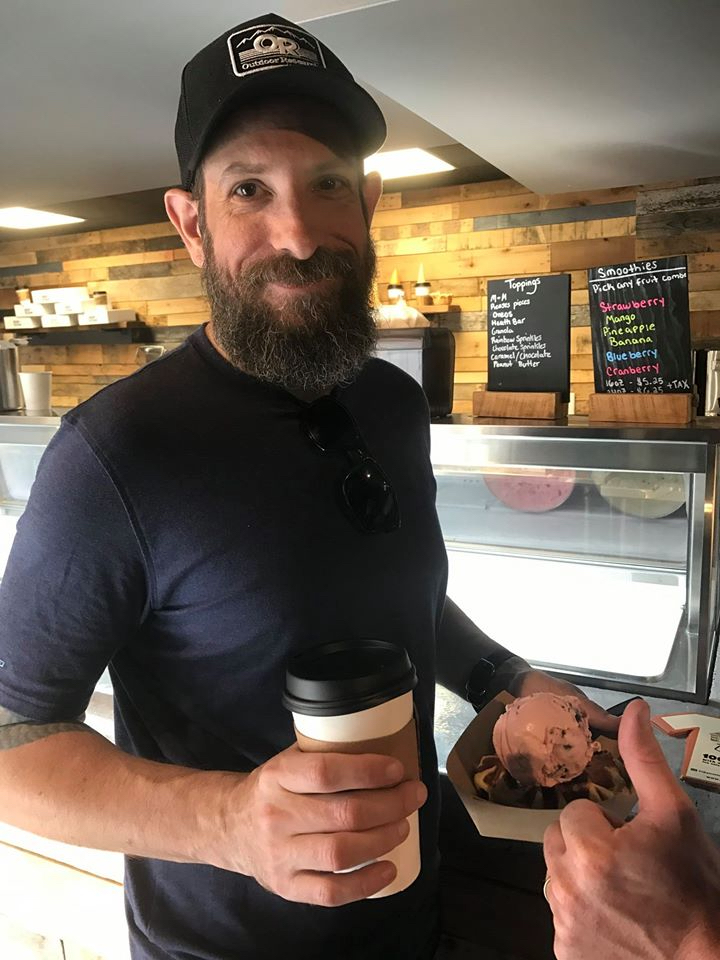Fourteen years ago, on an otherwise average night, I woke up with an excruciating toothache. Unable to go to the dentist at that hour, I drove myself to the ER where, upon checking my blood pressure, the staff quickly admitted me to the hospital. Hours later, they broke the news that I was experiencing full renal failure (and needed my tooth pulled).
It happened at a crucial point in my tech career: the beginning of the middle. The part where you’re through the uncertainty, but still building your skills and finding your way. In other words, not an ideal time to take a break.
I started my career at Microsoft in Seattle as a software test engineer working on games for Xbox. Within a few years I’d landed a role developing video games for a small gaming company. It was as close to living the dream as I thought one could get.

But the symptoms came on fast, and they were furious. Exhaustion. Extreme headaches. A metallic taste in my mouth that tainted the flavors of food, rendering me unable to eat. Moreover, I was unable to work. I had no choice but to return to my parents’ home in New Jersey where I was immediately handcuffed to a dialysis machine for the foreseeable future.
A year later, equipped with a newly transplanted kidney, courtesy of my mother, I was finally ready to return to the world of the working. I set my sights on moving to Austin to reboot my tech career.
I picked up as closely to where I left off as possible, first taking a QA gig at another small gaming company, evolving to a designer, then a producer, and within a handful of years I was leading a QA team for fitness apps at Under Armor.
Eventually, no longer able to withstand Austin’s lack of hoagies, my wife and I moved back to Philly. I was hired to be the QA manager at an AI software development startup called ASAPP based in NYC. I was at the top of my game, invigorated by the work and all of the possibilities that came with it.
Then, again, it all came crashing down.
My transplanted kidney had developed cancer and after an invasive removal procedure, the kidney was compromised and began to fail.
This time, the experience was different. There was no middle-of-the-night emergency; there were no tangible symptoms right away. So I continued working, hopeful I could sustain the career I’d built over the last decade, refusing to fall victim to my body’s rather inconvenient habit of rejecting kidneys.
###
It’s been a year since the cancer diagnosis. Twelve months of slow, steady decline, the hope of donors and the eventual despair when they don’t work out. Today I’m holding steady at 7% kidney function, managing symptoms and preparing to start time-consuming dialysis treatments.
Always a realist, I’m fully aware of how fast technology changes and what a prolonged break could mean for me at this point in my career. Can I afford to take time off from work if necessary? Will it even be possible to re-enter the workforce at the same level, or will I have fallen too far behind the curve?

Rather than dwell on the worst case scenarios, I’ve channeled my energy into keeping my tech career in tact, taking advantage of the exact kind advanced technology that threatens to render my experience obsolete if I have to take time off.
While it’s currently impossible to go into an office or travel to NYC once a week as I used to, applications like Slack, Google Hangouts, Google Docs, Zoom and internal Wikipages enable me to continue to manage my team of 10, as well as interact with hundreds of team members on a daily basis.
I can show up to a meeting without anyone knowing I’m actually resting on the bed or burrowed in fleece blankets from the chair in my home office. Much to my wife’s chagrin, I often bring work with me to hospital appointments. From my iPhone, I keep up with projects happening across platforms, participating in chat conversations and catching up on centralized meeting notes so that I don’t miss a beat.
As the company continues to grow at a rapid pace — two years ago there were around 30 of us and now here are over 300 — we’ve welcomed three additional offices around the world. Teams work asynchronously, with access to our platform from any location. I’ve begun to consider myself a fourth office here in Philly, which allows me to do what I need to do for my health without being “out of the office” in the traditional sense.
There are career moves that I’m making which I may not have considered if I wasn’t sick. For instance, I’m taking on a new position that will allow me to pull back from the day-to-day and focus on the bigger picture, so that I can miss time or meetings without affecting my team’s daily productivity.
Although it’s easy to wish for different circumstances, given the fact that few of these options existed for me the first time around, I’m hopeful that I can keep my career in motion until a new kidney comes my way.
And so, for as long as I can pull it off, I’ll be burning the midnight oil from my cozy leather chair. Because technology is the reason I want to go to work, and now, the only reason I’m able to.
_
Got a kidney to spare? Want to share your thoughts on this essay? Email absmosconi@gmail.com.







